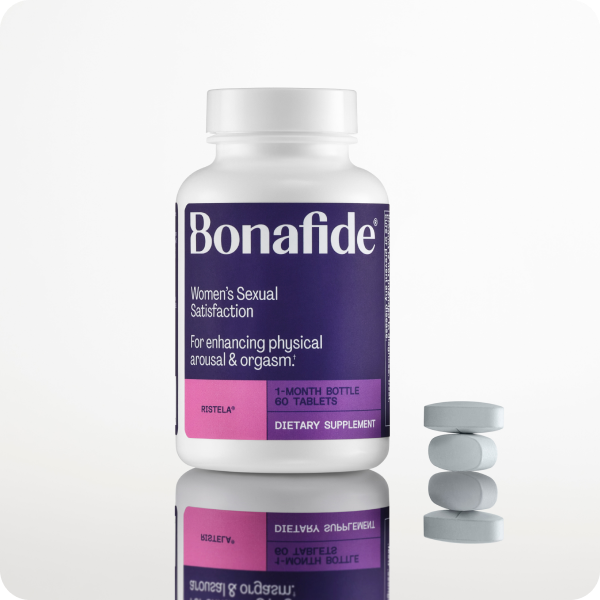Who knew? The benefits of orgasm are far reaching and extend well beyond just feeling good. From stress relief to improved sleep, and even enhanced intimacy, the positive impact of orgasms extends far beyond the bedroom. Let’s dive a little deeper into the science and physiology behind these benefits.
1. Orgasms Release Pleasure Hormones
Dopamine is a potent neurotransmitter produced in the brain. Orgasm is associated with a rush of dopamine, the ultimate pleasure and reward chemical in our brains.
2. Orgasms Also Release the Love Hormone
Oxytocin, often referred to as the “love and cuddle hormone” is not only released during breastfeeding, but also with orgasm. This hormone is released by the pituitary gland in the brain and promotes bonding and intimacy.
3. Orgasm Enhances Blood Flow
During the sexual response, the genitals become engorged with blood. Fun fact, the clitoris is actually erectile tissue, and similar to the penis, becomes engorged, firmer and more sensitive during stimulation and arousal. The clitoris is not just a small dime sized organ hidden beneath the clitoral hood, but it also has crura, or legs, that extend well into labia or the lips of the vulva. It has more than 10,000 nerve endings in a small surface area, making it super sensitive and really quite amazing since its sole physiologic responsibility is for pleasure.1
4. Orgasms Help Reduce Stress
Many find orgasm to be relaxing; so much so, that many will often drift off to sleep after sexual activity with or without a partner. Orgasm also releases oxytocin and plays a role in regulating cortisol (stress hormone) levels. Endorphins or “feel good chemicals” are also secreted with orgasm and provide a general sense of well-being.
5. Orgasm Optimizes Vaginal Lubrication
Let’s not forget the vagina, which is incredibly responsive to estrogen and self-lubricates during arousal and stimulation. This lubrication is a direct result of healthy blood flow. In some cases, such as during menopause for example, estrogen levels decrease and genital blood flow is diminished, leading to the potential for vaginal dryness and discomfort during sex, and a weakened, harder to achieve orgasm. Ristela®, a hormone-free dietary supplement which is designed to enhance sexual satisfaction, works by increasing blood flow to the genitals during the sexual response.*
Additionally, a recent experience trial suggests that Ristela may help improve sexual response in those women with diminished orgasm potential due to antidepressant use.*
6. Orgasms Are the Ultimate Kegel Exercise!
During orgasm, muscles of the pelvic floor contract over and over. This is akin to strength training for these important muscles and may help over time to keep organs, including the bladder, supported to help maintain continence.
7. Orgasms Offer Pain Relief
Orgasms have long been known to help relieve menstrual cramps. In fact, many who ask about engaging in sexual play during their menses are encouraged to go for it – pleasure and cramp relief!
8. Orgasms May Help Promote Immune Function
Alongside its pleasurable effects, orgasm may also give your immune system a boost. Research suggests that the release of endorphins during orgasm can enhance immune function.2
9. Orgasms Support Sleep Quality
The relaxation and release of tension that accompany an orgasm can have a profound impact on sleep quality. In addition to reduced stress, many people find that they fall asleep more easily and enjoy a deeper, more restorative sleep after experiencing orgasm. Some report a more restful night’s sleep after orgasm and many women self-pleasure to relax and fall asleep peacefully. This is due in part to the release of oxytocin and other hormones that promote relaxation and feelings of well-being.3
10. Orgasms Help Foster Emotional Connection
Beyond physical pleasure, orgasm can deepen emotional bonds and intimacy between partners. The release of oxytocin, the "love and cuddle hormone" mentioned earlier, during orgasm promotes feelings of trust, affection, and connection, helping to strengthen the emotional aspect of relationships.4
You Can Benefit from Orgasm After Menopause
It seems like women truly are the ultimate multitaskers; indeed. One orgasm simultaneously accomplishes strength training, stress reduction, a good night’s sleep and sheer pleasure. If you find that menopause is impacting the strength or intensity of your orgasms, you have options. Some simple lifestyle changes can make a big impact in improving the feeling of orgasm.
Resources
- https://pubmed.ncbi.nlm.nih.gov/36763957/#:~:text=Introduction%3A%20It%20is%20frequently%20quoted,sensation%20and%20somatic%20clitoral%20innervation
- https://pubmed.ncbi.nlm.nih.gov/15316239/
- https://pubmed.ncbi.nlm.nih.gov/36646500/
- https://www.psychologytoday.com/us/blog/intimately-connected/202009/how-sexual-thoughts-build-emotional-connections-between-strangers









Comments
Post commentI’m 75 years old and I had no interest and no participation in sex for 15 years before I met someone online. Over time, our “friendship” developed, things got “flirty”, and we both started “talking dirty” to each other. I dug out my long-hidden vibrator and “got busy”. After the first week, and three orgasms, my incontinence DISAPPEARED. I had been struggling with this embarrassing situation for FIVE YEARS. Since I rediscovered my sexuality, I got “greedy” and wanted BIGGER orgasms. Ristela to the rescue! I’ve been taking it for about a month and a half and after the first week, I already noticed more intense and satisfying orgasms! I get aroused just by talking to my cyber-lover and I feel like I’m in my 20s again! In fact, one of my closest friends is 26 and she’s AMAZED by my level of sexuality. I’m the “horniest 75-year-old” she’s ever MET. Thank you, Ristela!
Great article and Dr Dweck is very near me in location
I’m 74 years old and have been taking Ristela twice a day now for 3 months. I have found I have more interest in sex. My libido is stronger and desire is greater. I would encourage older women to try Ristela to enjoy love making agsin.